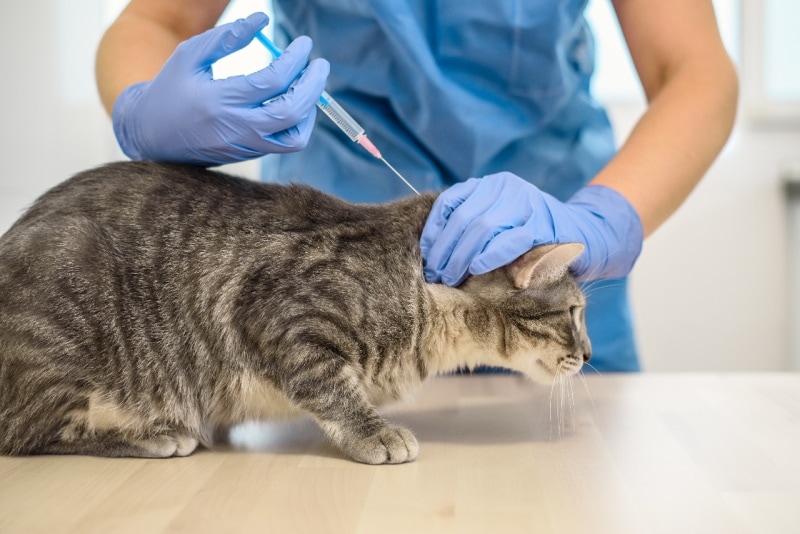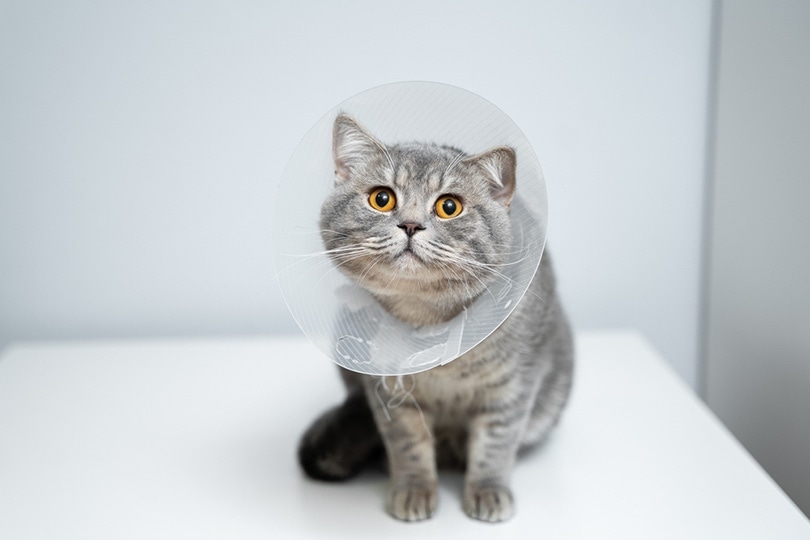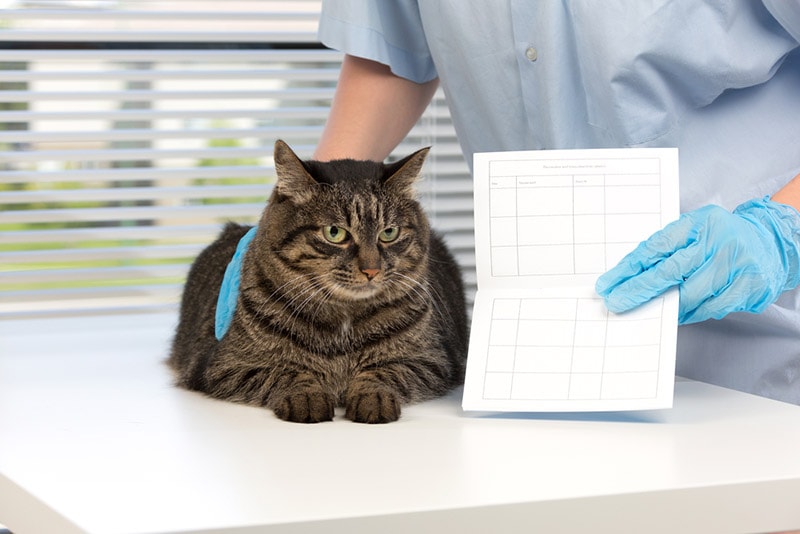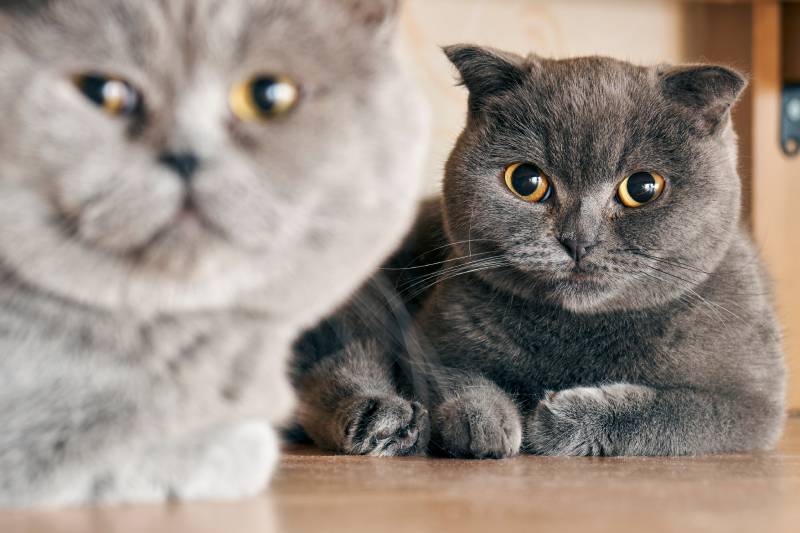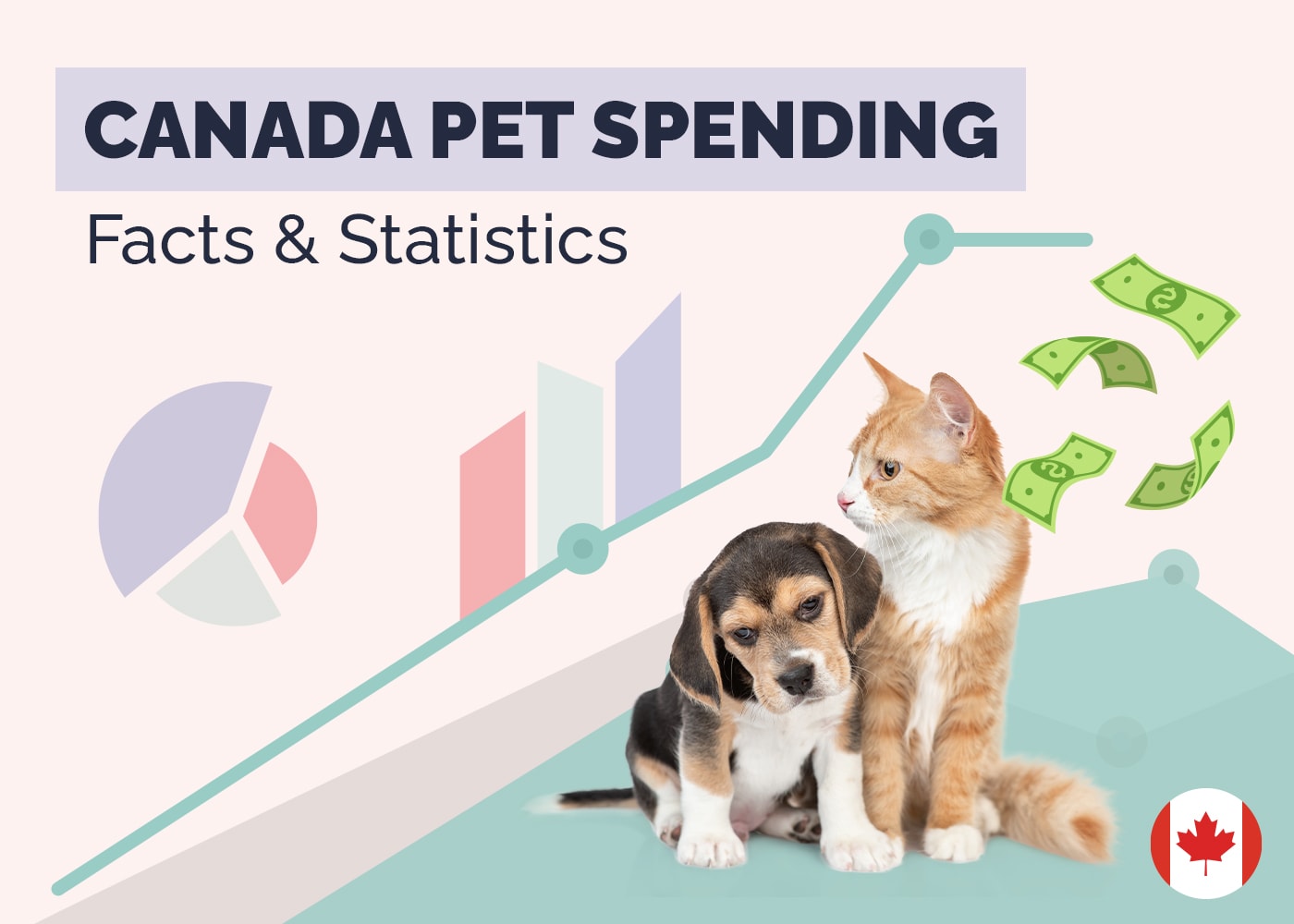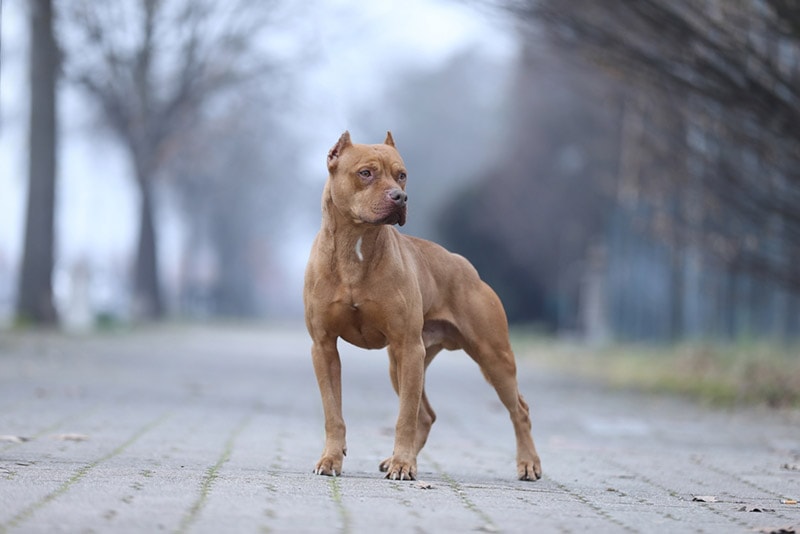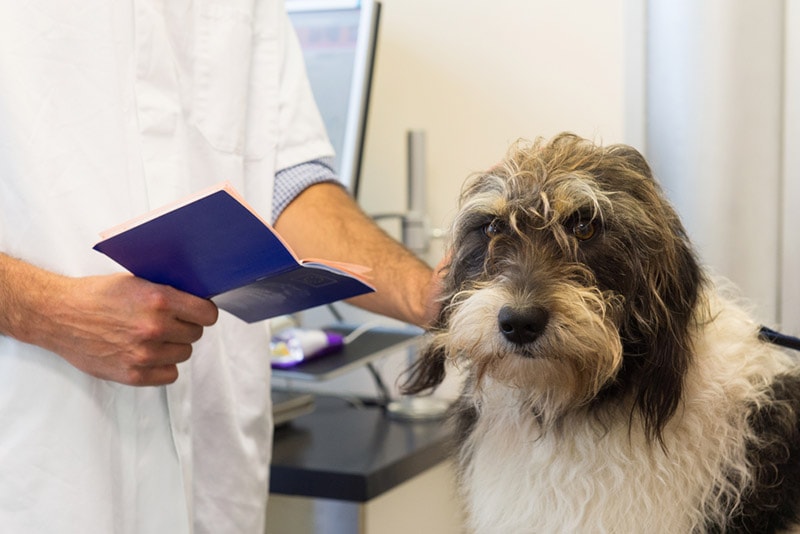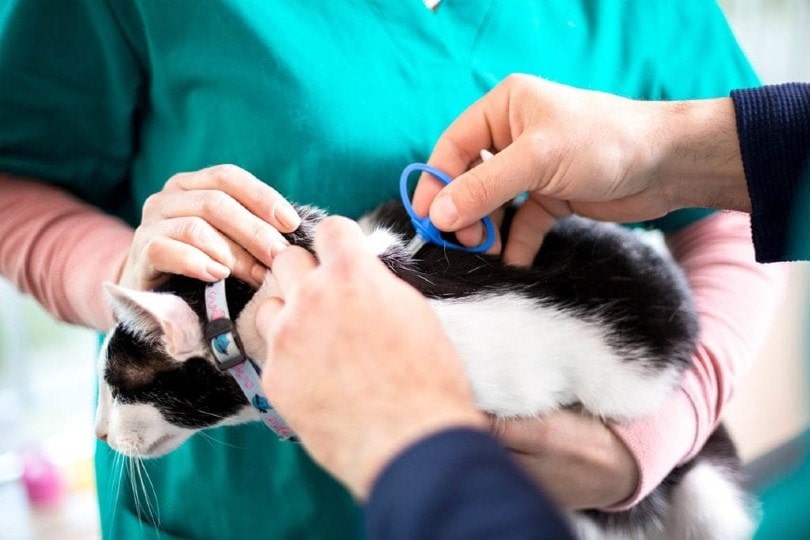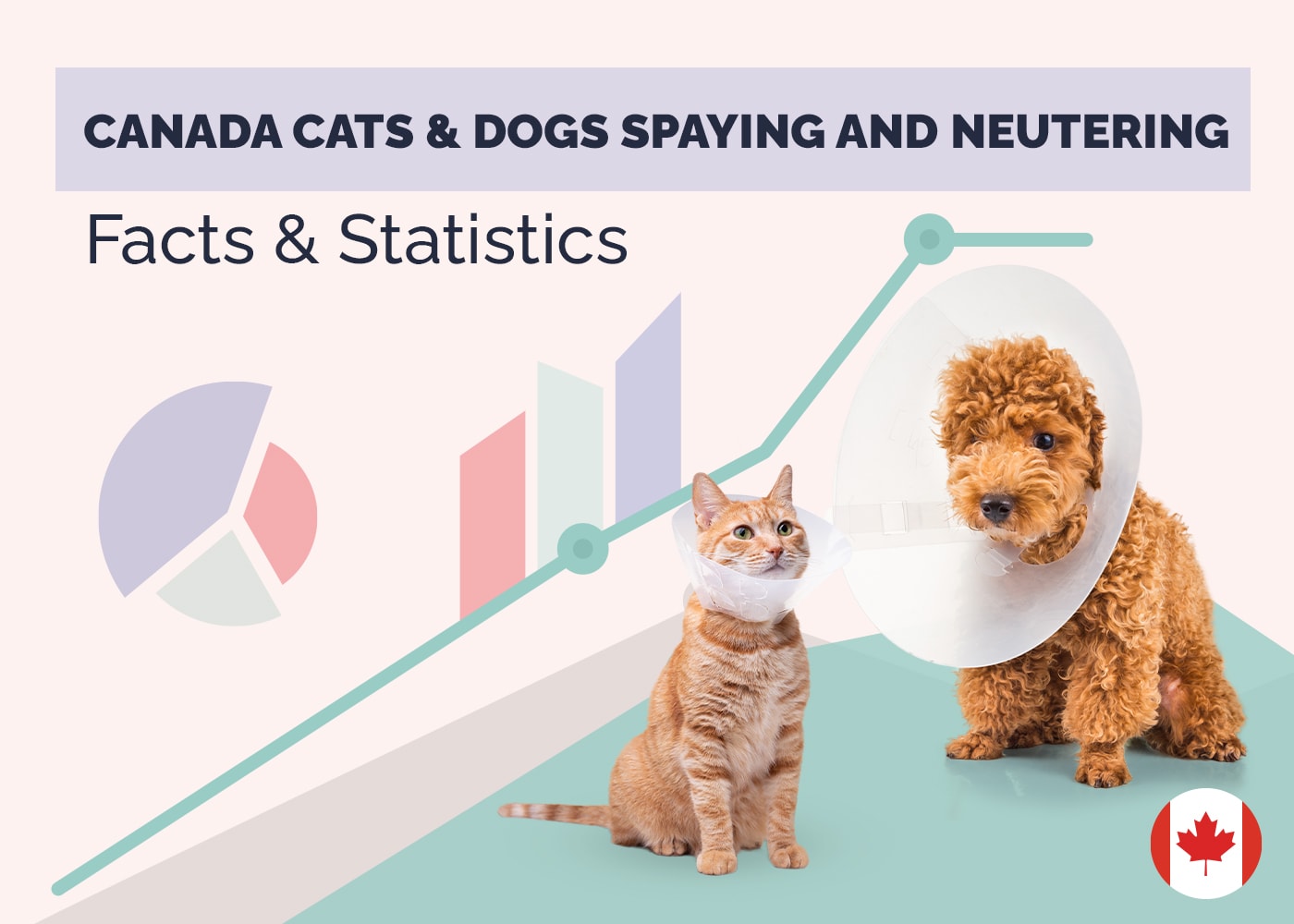What Is the Cost of Cat & Kitten Vaccinations in Canada? (Updated in 2024)
Updated on
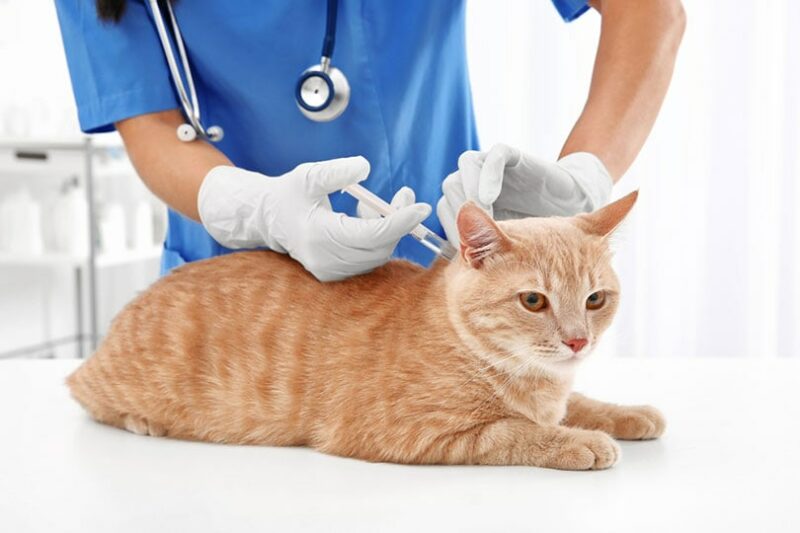
Whether you’ve just welcomed a new kitten into your home or it’s time for your senior cat’s annual wellness exam, following your pet’s vaccination schedule is mandatory for their well-being. That said, the price range for these procedures in Canada varies due to several factors, including the type of vaccines, veterinary clinic, age, and lifestyle of your pet. In general, the average annual cost of vaccination is between $120-$150 for kittens and $90-$120 for cats.
Let’s take a look at the costs that Canadians should expect to pay to get their feline friends vaccinated.
The Importance of Cat & Kitten Vaccinations
Here’s a brief reminder of the importance of vaccines for animal (and human) health, according to the Canadian Veterinary Medical Association (CVMA)1:
“Vaccines remain, to this day, one of the most effective and safest ways to protect your pet against the most common infectious diseases. As vaccines contain dead or live bacterial substances, they help the animal’s immune system to fight them afterward. They also help protect human health by reducing zoonoses, e.g., infectious diseases transmitted from animals to humans (such as rabies).”
In other words, by vaccinating your kitten or cat, you are doing more than helping to protect the health and life of your precious four-legged friend: You are also protecting other pets and humans.
Cat & Kitten Vaccination Requirements in Canada
The CVMA recommends the following core vaccines for all cats and kittens2:
- Feline viral rhinotracheitis
- Calicivirus
- Feline panleukopenia
- Rabies
The first three can be given in a single injection with the FVRCP combination vaccine. This core vaccine will protect your cat against feline viral rhinotracheitis (FVR), calicivirus (C), and panleukopenia (P), three highly contagious and potentially fatal feline diseases.
Other non-core vaccines may also be given depending on environmental factors and the cat’s age, lifestyle, and health status. For example, the feline leukemia (FeLV) vaccine is highly recommended for all felines, but especially for kittens and cats that go outdoors.
In short, you should discuss your pet’s specific vaccination needs with your veterinarian to determine the best vaccination protocol and frequency of booster shots for your feline.
How Much Do Cat & Kitten Vaccinations Cost in Canada?
The cost of core vaccines for kittens and cats varies according to the veterinary clinics and the Canadian province. For adult cats, the cost of the FVRCP and rabies vaccine ranges from $90 to $125. Boosters are given every 1–3 years, depending on the vaccine.
For kittens, the total cost of the series of vaccines required in the first year is around $150 (for three to four shots). Note that these fees are generally higher in British Columbia, Ontario, and Quebec.
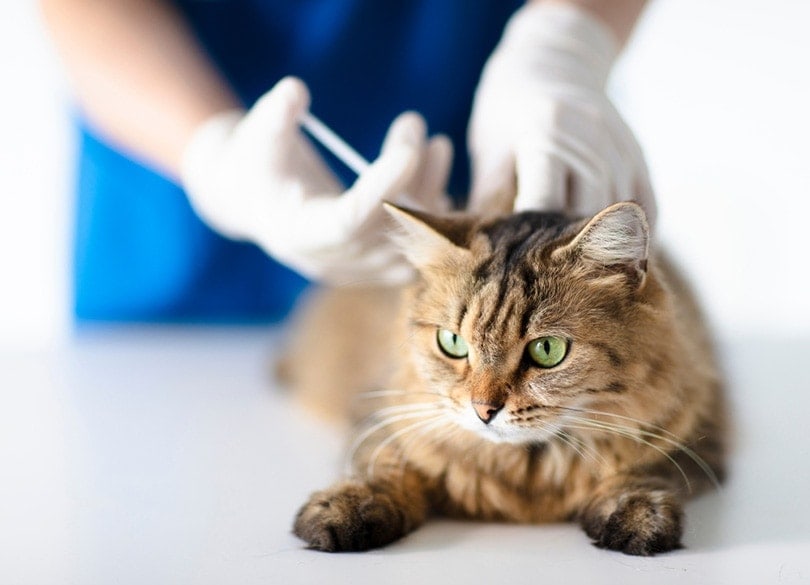
Standard Costs of Cat & Kitten Vaccinations by Province
Here is the average annual cost of vaccinating kittens and cats in each of the Canadian provinces and territories for the core vaccines (FVRCP and rabies):
| Kitten | Cat | |
| Alberta | $150 | $120 |
| British Columbia | $170 | $125 |
| Saskatchewan | $150 | $115 |
| Manitoba | $150 | $100 |
| Ontario | $150 | $125 |
| Quebec | $170 | $115 |
| Maritime Provinces | $150 | $100 |
| Northwest Territories | $120 | $90 |
Note that these costs do not include the physical examination prior to the administration of the vaccines.
Additional Costs to Anticipate
A nose-to-tail physical examination is required so your veterinarian can assess the overall health of your cat before administering the necessary vaccines. Exam fees vary between $60 and $100, depending on the clinic.
Moreover, your veterinarian may suggest additional non-core vaccines (such as FeLV) depending on your pet’s lifestyle. For example, if your pet goes outside, they may need extra protection to reduce the risk of contracting diseases. The cost for each additional vaccine varies between $25 and $45. Organizations like SPCA and the Humane Society generally offer the lowest costs, so it’s worth contacting your local organization for information and appointments.
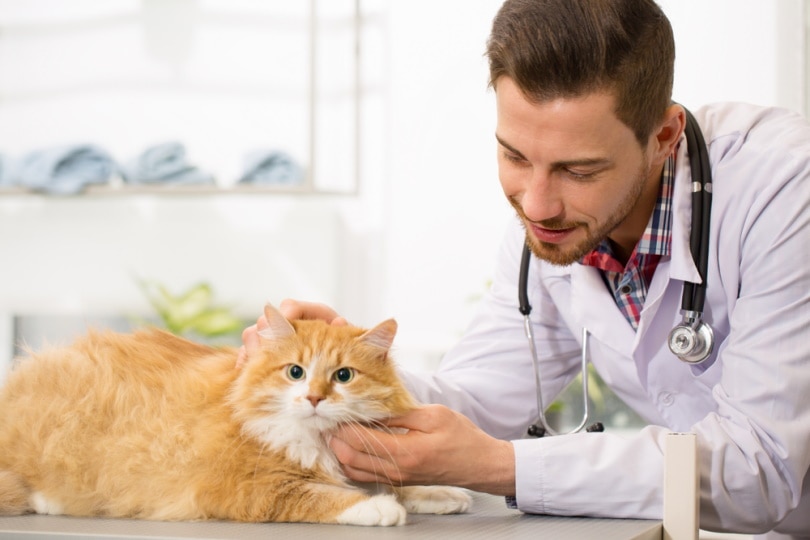
 FAQs
FAQs
How Often Do Cats Need Vaccinations?
During your visit, your veterinarian will analyze the risks according to your cat’s lifestyle and can advise you on the appropriate vaccines.
How Often Should Kittens Be Vaccinated?
In general, vets recommend that kittens receive their first doses at 6 to 8 weeks of age. They will need to receive subsequent shots every 3 to 4 weeks until the age of 4 months to obtain complete immunization. They will then receive a booster vaccine at the age of 1 year.
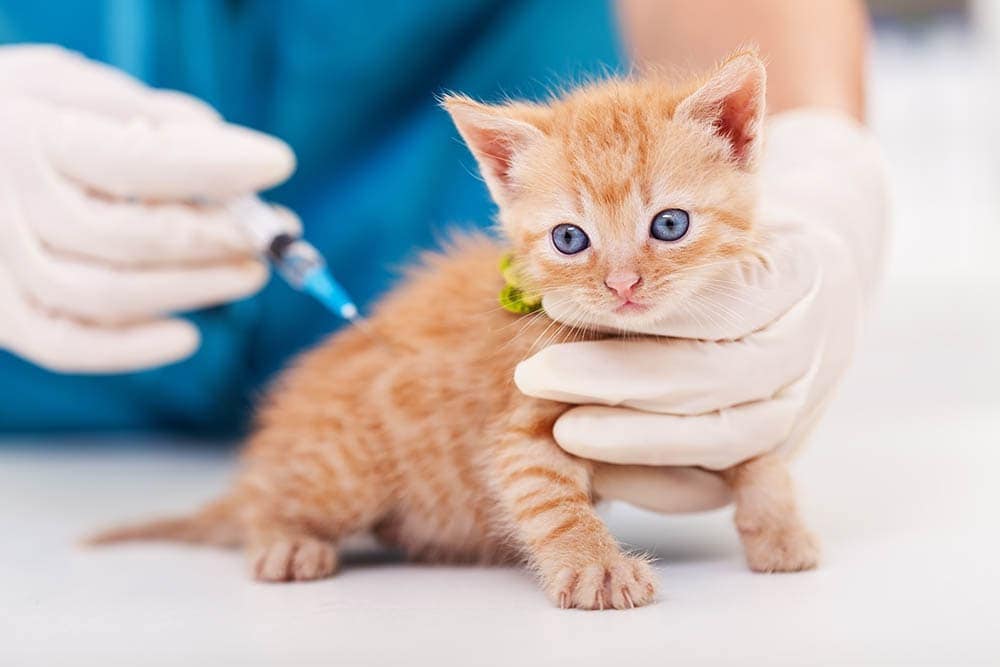
How Often Should Adult Cats Be Vaccinated?
Depending on your cat’s lifestyle, they should be vaccinated every 1 to 3 years, depending on the vaccines. Your veterinarian can advise you on the frequency of booster shots depending on the treatment chosen for your animal.
Is It Necessary to Have My Cat Vaccinated If They Don’t Go Outside?
Veterinarians recommend vaccination for all cats, whether they go outside or not, since it is still possible for them to contract certain diseases without going outside. Vaccination greatly increases the chances of keeping your companion healthy for a long time, in addition to protecting you against certain diseases that they could transmit to you.
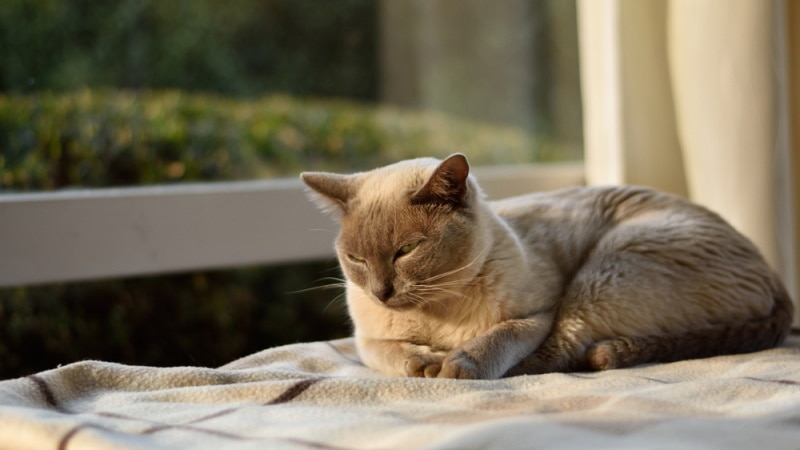
What Are the Side Effects of Vaccinations?
The CVMA states that the use of vaccines is associated with certain risks, though most adverse effects are transient, mild, and rarely require treatment. Common mild side effects include:
- Redness, slight swelling, and tenderness at the vaccination site
- Fatigue
- Loss of appetite
- Mild fever
If any of these signs last longer than 24 hours or your cat seems extremely uncomfortable, contact your veterinarian.
Note: A small but painless lump may form where the vaccine was injected. It usually goes away on its own within a few weeks. However, if the lump persists for longer than 4 weeks or begins to grow, schedule an appointment with your veterinarian to have it evaluated. A growing mass like this could be linked to a type of malignant skin tumor called feline injection-site sarcoma. Fortunately, this serious adverse reaction to a vaccine is rare and occurs at a rate of approximately one case per 10,000 to 30,000 vaccinations.
How do I Take Care of My Cat After Vaccinations?
Keeping a close eye on your cat is probably the best way to care for them after vaccinations. This way, if they suffer any side effects, you can react quickly and contact your veterinarian.
Provide your cat with plenty of fresh water, let them rest in a quiet and comfortable place, and watch for any signs of distress or pain.
Does Pet Insurance Cover Vaccinations?
Generally, pet insurance companies do not cover vaccines. However, most do offer preventative care coverage for an additional fee. For example, Petsecure has a Wellness coverage plan with one of its packages, which can be used for annual checkups and vaccinations.

Conclusion
Overall, the first year of your kitten’s life will be the most expensive in terms of vaccine costs (and all the other medical expenses). For the whole series of core vaccines and the physical examinations required, you should expect to shell out an average of $250 in the first year. Booster shots, given every year or every 3 years, are usually less expensive, but with exam fees, you’ll need to budget between $75 and $125 for each visit.
That said, vaccines are necessary to protect your feline companion’s health and can save you hefty bills in the future. Either way, discuss your cat’s specific needs with your veterinarian so they can establish an appropriate vaccination protocol.
Featured Image Credit: Africa Studio, Shutterstock

